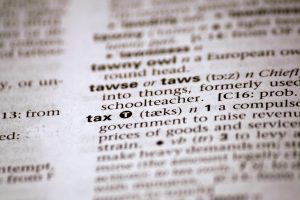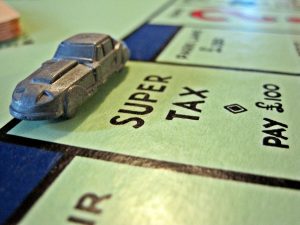If you currently have a homestead exemption on your property or even if you don’t know if you do, you might want to check and consider the consequences if you’re not using the home as your primary residence. If you’re improperly using a homestead exemption, you may be responsible for rollback taxes with your local county if you sell the home (or they catch up with you before then). While the homestead exemption can save you money on your property taxes, it can cost you in the long run if you forget to notify the tax collector when you stop using the home as a primary residence.
Do You Have a Homestead Exemption?
If you bought a home and are living in it as your primary residence, you should have filed a homestead exemption on your property to save some money on your property taxes. Sometimes, we find that people forget to do it (you have to file in the year that you occupied the home on January 1st – ie, if you buy in November of 2016, you’re not eligible to file for it until 2017 because you have to live in the property on the first day of the year you’re eligible to file) and wind up not taking advantage of this way to lower to your property tax liability. If you don’t know if you’ve filed for it before, you can look up your tax records in most Texas counties. Let’s use Bexar County for example. The website for the Bexar County Appraisal District is bcad.org (you can find your county’s appraisal district by googling “(your county name) appraisal district”), once on the site look for a link to “Property Search” (may be called something similar on different sites) and search for your property. Now that you’ve pulled up your tax record, look for a line that says something to the effect of “exemptions” – on the Bexar County site, it can be found in the first section (Property) on the lower right hand corner labeled “Exemptions” (see image).
The “HS” listed there is the abbreviation for homestead exemption and indicates that this property has one in place.
One of the basic requirements of having a homestead exemption is that you live in the home as your primary residence. But what if you file one, live in the house for awhile and then move on, keeping the home as a rental property or a vacation home? Now that the home is not your primary residence, the homestead exemption doesn’t apply to you…but it doesn’t just automatically go away. The application for exemptions states the following:
DUTY TO NOTIFY: If the chief appraiser grants the exemption(s), you do not need to reapply annually. You must reapply if the chief appraiser requires you to do so, or if you want the exemption to apply to property not listed in this application. You must notify the chief appraiser in writing before May 1 of the year after your right to this exemption ends.
That last line is what we’re after here – you must notify the chief appraiser, in writing, if your right to the homestead exemption no longer applies. As the main condition for the exemption is using the home as your primary residence, you must notify them if you are no longer using it as such.
Rollback Taxes
If the appraisal district suddenly realizes that you have not been living in the home as your primary residence, they can now charge you rollback taxes. The idea is that they’re simply rolling back the clock so that they can collect what wasn’t paid in the past. In the case of a sale, the title company has to draw a tax certificate from the county to ensure that all the taxes are currently paid, so when they do that, the county appraisal district will take a look at the property and can decide that they didn’t collect everything that was due to them and make those taxes due immediately. Being hit with a sudden charge of rollback taxes on your closing statement can be unexpected and take away from any money you might have expected to walk away from the sale with. The tax man will be happy, but a homeowner who suddenly finds themselves shelling out more than they were prepared for can find this rather frustrating.
The best way to keep this from happening? Notify your appraisal district of any changes in your residency status on a home right away. This way, there will be no tax surprises when selling your home.
image courtesy of Alan Cleaver


